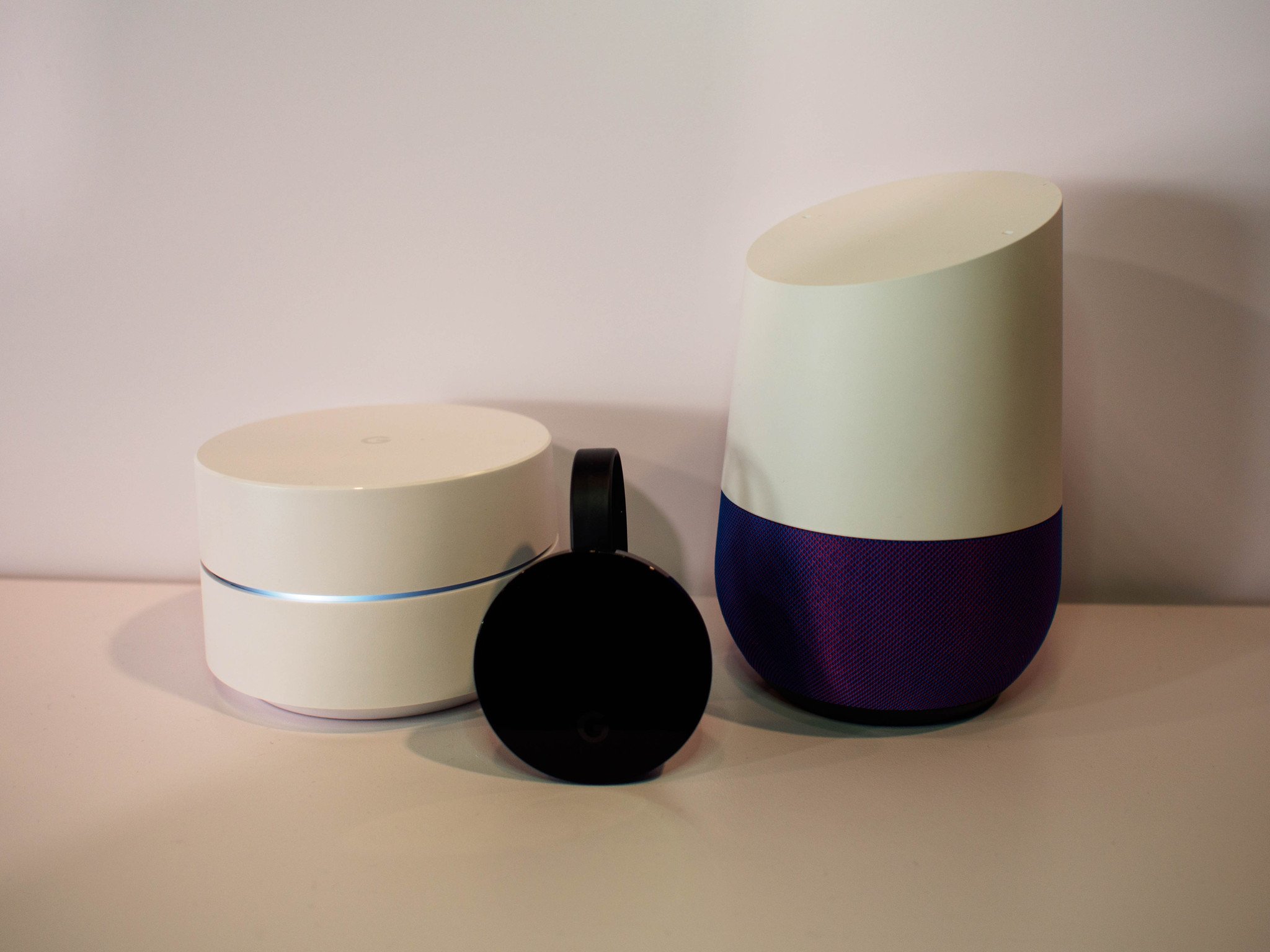Not having other options makes the decision pretty easy.
Google's vow when launching Assistant was that it'd be an ever-present service available on all of your most-used devices with a consistent experience and knowledge base no matter where you accessed it. That in many cases has ended up being true — with a few exceptions, you can talk to Google Assistant on different devices and expect the same results. That is, of course, if you actually use Google Assistant on multiple devices. In my case, I find myself using Google Home on a daily basis ... but I almost never use Google Assistant on my phone.
Google Home has become a part of my daily routine.
Throughout the course of the day, I'll always find reasons to use Google Assistant on one of my two Google Homes. I'll use the Home Mini on my nightstand as an alarm or to listen to a podcast for a few minutes in the morning. In the kitchen, I'll ask my Google Home to give me a weather report for the day and then play some music while I prepare breakfast. Later in the day my girlfriend and I will no doubt have some bevy of questions that are quickly answered by the nearest Home, not to mention cooking timers and frequent reminders. Sure, I'm not using it for the most advanced features — we explicitly don't have any home automation gear — but the point is that I always use Google Home for something throughout the day. I find it works quite well and I'm rarely frustrated with its inability to do what I want purely using voice.
So why is it that I haven't launched Google Assistant on my phone in weeks? Well, it's simple: I have a better way to get the information I need on my phone. A big screen, with a bunch of powerful apps that I'm accustomed to using that don't necessarily have hooks into Google Assistant. By just unlocking my phone, opening up the app that I know I need and finding what I want, I remove any uncertainty I'd have that Google Assistant on the phone would be able to do what I want. Yes, Google Assistant on my phone can offer up weather information or answer a random question just like my Google Home can — but the difference is that I expect to do far more than that on my phone. And I don't want to talk to it for a small subset of things when I still have to interact with the display for everything else.
In short, it's the fact that I have a display and touch available to me that makes Assistant on a phone superfluous in almost all cases. Google Home, on the other hand, only has voice interaction, and so my expectations for what it can do are limited — therefore I only give it queries for what I know it can reasonably handle. By comparison, using voice on my phone is far more likely to come up short of what I need it to do considering the wide range of things my phone is capable of, pushing me to then do that thing a second time with the screen — at that point I might as well skip the whole thing and go straight to touch.
When you have a better way of interacting with a device, you take it — touch is better than voice in most cases.
Yes, there are situations in which touch isn't an option, like when I'm driving using Android Auto, or if I'm elbow-deep in some dishes in the sink — but those situations are fringe cases, not daily requirements. We all have years of experience using smartphones with touch, and when that's a viable option for interaction we'll always take it. That's not a slight on how useful Google Assistant is — I've found in my daily life that it certainly is useful — but that touch is just a faster, more accurate way to get things done on a phone. And phone screens just keep getting bigger to facilitate that.
Whether this is actually an "issue" from Google's perspective isn't quite clear. Clearly Google Assistant has to be really good on the Home in order for people to keep using it, considering it's the only way to interact with the device. But on a phone ... Google Assistant feels like it's there for cross-compatibility and completeness more than as a tool to be used on a daily basis to truly change how we interact with our phones. Google obviously admitted that voice isn't perfect for all use cases when it launched typing support in Assistant on phones ... but could it eventually go further to make phone-specific changes to the way Assistant works? I think it needs to, because right now it isn't compelling enough to make me talk to my phone.
Google Hardware
- Google Wifi review
- Google Home review
- Chromecast Ultra: all you need to know
- Which Chromecast should you buy?
Google Wifi:
Google Amazon
Google Home:
Google Best Buy
Chromecast Ultra:
Google Best Buy
from Android Central - Android Forums, News, Reviews, Help and Android Wallpapers https://ift.tt/2HwKEl4
via IFTTT


No comments:
Post a Comment